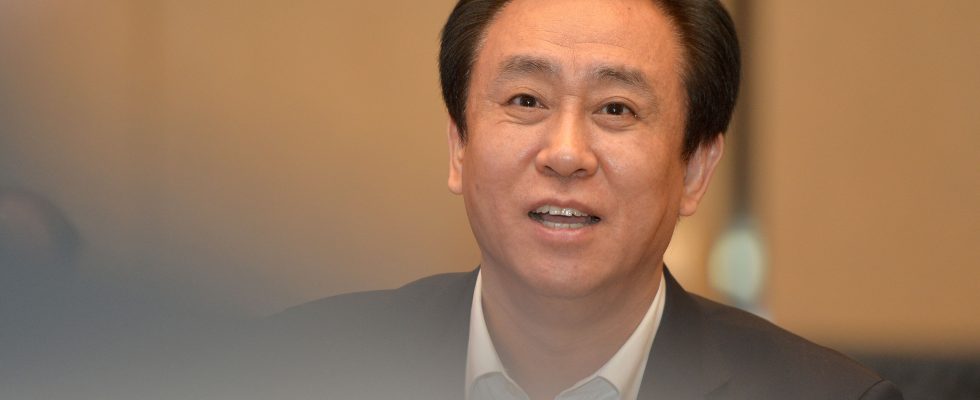China is witnessing the fall of two giants: that of the real estate empire Evergrande, and that of its boss, long considered the biggest fortune in China and currently under house arrest. Xu Jiayin, the founder of the decaying real estate monster Evergrande, was reportedly according to anonymous sources from the Bloomberg news agency, placed under house arrest and deprived of his passport since the beginning of September.
After this announcement on Wednesday, September 27, Evergrande shares still lost nearly 19% on the Hong Kong Stock Exchange, before the action was entirely suspended on Thursday morning. A nightmare stock market scenario which had already unfolded in 2021, when the company, strangled by debt, had to suspend its operations on the Hong Kong market after losing 80% of its share price. This news adds to the crisis which is already hitting the largest Chinese developer, with astronomical debt. They come after a subsidiary of Evergrande announced on Monday that it was unable to repay interest on a loan, before canceling without notice a meeting on the restructuring of its debt, to the great dismay of its lessors and accentuating the vagueness around his future.
Self-made man and loyal party servant
Xu Jiayin – Hui Ka Yan in Cantonese – is the son of a poor family of loggers, born in the central province of Henan in the midst of the “Great Leap Forward” famine, which caused between 30 and 50 million deaths between 1959 and 1961. Raised by his grandparents under a straw roof, he was admitted to the Wuhan Iron and Steel Institute in 1978, before working for ten years in a steelworks which he ended up managing. .
He then tried his luck as an entrepreneur in the China of Deng Xiaoping’s economic reforms, and in 1996 created the company “Hengda” (Grand forever, or Evergrande in English) in the city of Guangzhou (Canton in French) in the south. east of China. First known as a real estate developer – the company says it now has more than 1,300 projects in 280 cities – Evergrande had long surpassed this sector, to form a veritable empire and expand to shopping centers and parks in leisure, mineral water, insurance and health, solar panels, pig breeding, and even football.
A member of the Chinese Communist Party for more than three decades, its 64-year-old billionaire creator had invested part of his fortune in areas approved by the highest leaders such as traditional Chinese medicine or electric vehicles, dreaming of being at the origin of the future “Chinese Tesla”. He also proved to be a generous philanthropist.
This success and loyalty to the CCP had earned him his place among the most powerful in the country. In 2021, as Chinese President Xi Jinping marked the centenary of the Communist Party in a speech proclaiming his country’s unstoppable rise, he was among the hand-picked guests to attend the festivities in Tiananmen Square. He is also known for his proximity to his Hong Kong equals, the tycoon Joseph Lau, boss of Chinese Estates Holdings, the directors of CC Land Holdings, the conglomerate Emperor Group, and the investment fund China Strategic Group, with whom he shares poker games.
A fortune divided by ten
Finances like those of his company. Evergrande, whose descent into hell regularly makes the headlines, had a colossal debt at the end of June estimated at 328 billion dollars (307 billion euros), becoming one of the most indebted companies in the world. The setbacks of the group, former number one in real estate in China, have fueled distrust for two years in a sector that has long been very lucrative but is now shunned, against a backdrop of economic slowdown and unfinished housing.
Finances like those of his company. Evergrande, whose descent into hell regularly makes the headlines, had a colossal debt at the end of June estimated at 328 billion dollars (307 billion euros), becoming one of the most indebted companies in the world. The setbacks of the group, former number one in real estate in China, have fueled distrust for two years in a sector that has long been very lucrative but is now shunned, against a backdrop of economic slowdown and unfinished housing.
Another factor which explains this decline: the repression put in place by the Chinese government in 2021, in order to fight against excessive debt and speculation in the real estate sector after its spectacular growth in recent years. A destiny that other real estate tycoons could follow like billionaire Yang Huiyan and her Country Garden group, whose fortune has also begun to melt away under the influence of her group’s difficulties.
